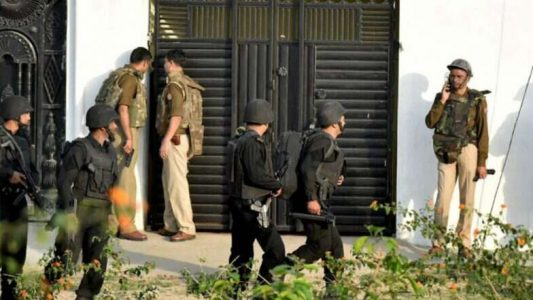
Al Qaeda-linked group attempts to regroup in Bangladesh
Bangladesh’s Islamist landscape unexpectedly expanded with a reported resurgence of al-Qaeda-linked Harkat-ul Jihad al-Islami-Bangladesh (HUJI-B—Movement of Islamic Holy War-Bangladesh) terrorist group, which has been lying dormant for over a decade. On October 2, Dhaka police arrested three senior HuJI-B operatives from the Khilgaon area of the capital city who were reportedly engaged in reviving HuJI-B’s operations in Bangladesh.
The arrested were identified as Mohammad Atikullah, who is in charge of HuJI-B’s international relations, Nazim Uddin, secretary of HuJI-B’s Dhaka operation and Mohammad Borhanuddin, who is in charge of the HuJI-B’s Feni unit in Chittagong. The investigating agencies have initiated a countrywide search and sweep operation for an additional 30 or more HuJI-B members and sympathizers that came in contact with Mohammed Atikullah, who seems to be the leading financier. According to police, at least five of them are presently hiding in the capital Dhaka and the rest are in the Chittagong area.
Initial interrogation reports revealed that all three arrested operatives have combat experience from the Afghan-Soviet war, fighting alongside Taliban and al-Qaeda jihadist elements. Among these three arrestees, Mohammad Atikullah had multiple meetings with jihadist leaders in Afghanistan during the late 1990s. Atikullah, who is originally from Feni, Chittagong, reportedly returned to Bangladesh in 1998 after meeting Taliban supreme leader Mullah Omar and al-Qaeda’s Osama bin Laden and began working in different Quami madrasas to spread HuJI-B’s grassroot network in Bangladesh.
He was involved in establishing an Islamist charity named al-Ansar-Welfare Foundation before he fled to Dubai in 2006. He remained in Dubai for several years and returned to Bangladesh in March 2019. Upon his return Atikullah and two of his associates started meeting former HuJI-B’s underground cadres and the family members of imprisoned HuJI-B operatives, attempting to reorganize and revive HuJI-B’s operations in Bangladesh (Daily Star, October 3; Daily Star, October 5).
In early March, Dhaka metropolitan police stumbled upon criminal cases, like robbery, that exposed HuJI’s fundraising and gun running activities in the country. Despite the decade-long dormancy of HuJI-B, there have been signs of its covert existence in the country. The arrests of two HuJI leaders identified as Hafiz Ibrahim Ghazi and Mamunur Rashid, along with 12 members of a robbery gang in the capital’s Jatrabari and Rampura areas, exposed this resurgence to the public.
Bangladesh’s history is replete with HuJI-B’s violent campaigns against the pro-democratic and secular Awami League (AL) political party and other civil society members. The leaders who have spearheaded the Sunni (Hanafi-Deobandi) militant movement in Bangladesh, such as Mufti Hannan, Sheikh Farid, and Maulana Abdus Salam guided both covert and overt actions of the group in Bangladesh and beyond, especially in neighboring Myanmar, where the HuJI-Arakan (named after present day Rakhine state, Myanmar) chapter was active for several years.
HuJI-B was blamed for a number of violent attacks primarily targeting AL political rallies and conspiracies to assassinate its leader Sheikh Hasina between 1999 and 2004. Under the leadership of Mufti Abdul Hannan, the HUJI-B on August 21, 2004 launched a grenade attack on Sheikh Hasina’s rally in Dhaka that claimed the lives of 24 AL party workers, including a senior women affairs secretary Ivy Rahman (Daily Star, August 22, 2004). Exactly three months before, on May 21, 2004, HuJI-B attempted to assassinate British High Commissioner to Bangladesh Anwar Choudhury at Hazrat Shahjalal Shrine in Sylhet. Though Choudhury escaped with minor injuries, at least three people were killed in the grenade blast at the historic shrine (Daily Star, May 22, 2004).
HuJI-B conducted two other major attacks, including a bombing in Ramna Batamul, Dhaka, in mid-April 2001 that targeted a Bengali New Year celebration, and an attack in March 1999 on a cultural function of Udichi in Jessore. The masterminds of these violent attacks were Mufti Abdul Hannan—then chief of HuJI-B—and his accomplices Sharif Alam Bipul and Delwar Hossain. They were executed in April 2017.
Source: James Town





